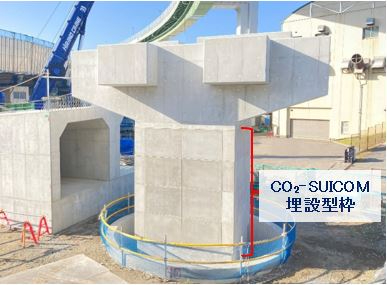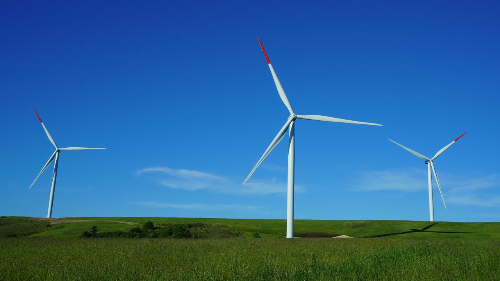JSTORIES ー 日本的初創企業生態系統(包括支持創業者的人才、來自投資者的資金籌集、政府的支持體系,以及網絡等基礎設施與體系)的建設正以迅速的步伐推進。然而,放眼國際,日本在這一領域的表現仍面臨嚴峻的評價。
根據以色列調查公司於今年5月發佈的初創企業生態系統指數國家排名,日本的排名從去年下滑至第21位。在亞洲區域內,日本也僅排在新加坡、中國、印度、韓國之後,位居第5位,表現相對低迷。
在這種情況下,為加強初創企業生態系統並促進創新,國內外的創業者與投資者齊聚一堂,舉辦了旨在打造創新環境的國際網絡活動。同時,地方政府也積極行動,通過整個城市的努力來推動初創企業行業的發展,營造更加有利的創業氛圍。
東京都於今年5月繼續舉辦了第二屆國際初創企業活動 SusHi Tech(Sustainable High City Tech)Tokyo。該活動吸引了來自全球82個國家和地區的4萬名參與者,展示了持續推動初創生態系統發展的承諾與實力。
本月8日和9日,福岡市也順應這一潮流,舉辦了名為 RAMEN Tech(Revolutionizing Asia: Merging Ecosystems & Networks - Tech)的網絡活動,吸引了來自世界各地的創新初創企業參加。此次活動旨在展示福岡作為創新和創業生態系統中心的潛力,向全球宣告日本的「初創城市」不僅僅是東京,福岡同樣是一個不容忽視的重要據點。

說到福岡,人們自然會聯想到豚骨拉麵的發源地。福岡市在過去的10多年裡一直積極支持初創企業,並自2018年起舉辦了多場交流活動。今年,受東京 SUSHI Tech 活動的啟發,福岡市將活動名稱改為與「拉麵」相關的 RAMEN Tech,這不僅象徵了福岡作為拉麵之都的地位,也契合了拉麵如今在國際旅遊者中超越壽司的壓倒性人氣。
在接受 JSTORIES 採訪時,活動主辦方福岡市的全球初創企業推進負責人藏滿溪(Kei Kuramitsu) 表示,此次活動選在以繁華街聞名的天神地區開放空間舉行,讓來自世界各地的參與者與普通市民自然交流,這是與以往初創活動的最大不同之處。他還指出:「以國際上也廣為人知的『RAMEN(拉麵)』 作為活動口號,吸引了來自世界各地的眾多參與者。」福岡市全球初創推進負責人藏滿溪(Kei Kuramitsu) 在接受 JSTORIES 採訪時表示,此次活動選擇在以繁華街著稱的天神地區開放空間舉行,這使得來自世界各地的參與者與普通市民可以自然地互動交流,這一點是與以往初創活動的最大區別。他還補充說:「以國際上耳熟能詳的『RAMEN(拉麵)』為口號,我們成功吸引了來自世界各地的眾多參與者。」

此次活動不僅邀請了當地的初創企業與投資者,還吸引了來自國內外的初創企業參與。活動期間舉辦了英語的創業提案(Pitch)大賽,以及由初創企業相關人士主持的各類專題討論。此外,為呼應 RAMEN 這一活動名稱,當地的四家世界知名拉麵店 也參與擺攤,吸引了眾多參與者的熱烈關注與喜愛。
國際化程度高的活動,吸引了來自世界各地的參與者,全程以英語進行
此次活動吸引了來自台灣、新加坡、越南、印度、芬蘭等多個國家和地區的初創企業、政府支持的初創支援機構以及基金代表參加,成為一場國際化程度極高的活動。活動中進行了英語創業提案(Pitch) 與討論會(Discussion),全程基本上沒有提供口譯服務。雖然部分活動以日語進行,但幾乎所有的交流都以全球通用語英語進行,充分體現了活動的國際化特色。
此項活動的領頭人是福岡市市長高島宗一郎,他早在2012年便宣佈福岡市為**「初創城市(Startup City)」。據悉,最初的工作是從普及「初創企業」的概念開始,而經過六年的交流活動,如今高島市長表示:「福岡市或許已成為亞洲問題解決型初創企業**最集中的城市之一。」

高島市長表示:「今年的主題是『全球化』。我們希望打造一個即使不去東京,初創企業也能在全球市場挑戰的環境。」
雖然在規模上不及東京的 SusHi Tech,但在國際化程度(Global度) 上毫不遜色
儘管在規模上不及東京的 SusHi Tech,但相關人士自信滿滿地表示,福岡的 Ramen Tech 在「熱情」以及吸引來自亞洲各地的初創企業相關人士的國際化程度方面,完全不遜色。
作為演講嘉賓之一參加活動的東京創投公司 Shizen Capital 的 Matthew Romaine 表示,Ramen Tech 活動展現的跨越語言與國籍的多樣性(Diversity) 水平,已經超越了東京的類似活動。

福岡市與當地支援團體緊密合作,為海外創業者提供簽證辦理支持,並協助雇用英語流利的全球化人才,致力於打造一個國際化初創企業社群,提供全面的實務支援。
此外,關於初創企業的培育,高島市長解釋稱,福岡市因為市內沒有一級河川,長期以來面臨水資源短缺的挑戰,這反而成為該市的獨特優勢。例如,在防災科技(防災Tech) 和利用衛星監控水管漏水以將損失降至最低的基礎設施科技(InfraTech) 領域,福岡市積極支持並引入比其他城市更先進的技術。

吸引了眾多海外初創企業 齊聚一堂
為期兩天的討論會上探討了許多國際性主題,包括「如何在亞洲培育獨角獸企業」、「亞洲初創企業從海外風險投資(VC)獲得投資的方法」、以及「海外初創企業在日本尋求投資與合作的技巧」等。這些主題打破了國界限制,具有高度實用性。在討論中,來自各國的參與者分享了各自國家對初創企業的支持狀況以及與其他國家的合作現狀。
特別引人注目的是,來自印度和新加坡的經驗分享。印度擁有超過100家獨角獸企業(估值超過10億美元),而新加坡雖然人口僅約500萬,約為東京的40%,卻擁有多達30家獨角獸企業。參與者對這些國家實際採取的初創企業支持措施,以及成功培育獨角獸企業的策略,表現出濃厚興趣,並認真傾聽相關信息。

來自台灣的10多家初創企業參與了此次活動。其中一家是利用AI技術 提供線上詐騙防護服務的台灣企業 Whoscall。該公司於2020年進軍日本市場時,選擇了福岡作為其主要據點。
儘管其後經歷了新冠疫情等不利因素,Whoscall 在日本市場仍持續推進實證實驗及B2C服務的展開。通過參與此次 Ramen Tech 活動,該公司與日本企業的合作討論進展順利,並且看到了B2B服務拓展的明確方向。
Whoscall 日本事業負責人 Wei-Chen Lo 表示:「通過此次活動,我們有機會結識 Ramen Tech 的贊助商,包括當地的銀行和電力公司。我們希望能夠利用他們穩固的本地基盤,將我們的解決方案提供給當地企業的廣泛網絡。」

文章:前田利継
編輯:一色崇典
封面照片:福岡市
如需了解更多信息,請聯繫:jstories@pacificbridge.jp
***








![[PODCAST] 日本新科技助攻不孕症治療(Part4)](https://storage.googleapis.com/jstories-cms.appspot.com/images/1768443226894unnamed-5_bigthumbnail.jpg)

![[PODCAST] 日本新科技助攻不孕症治療(Part3)](https://storage.googleapis.com/jstories-cms.appspot.com/images/1766558713084place-for-scientific-research-2025-03-07-14-08-49-utc%20(1)_bigthumbnail.jpeg)







![[PODCAST] 如何打造成功的新創企業社群(第2集)](https://storage.googleapis.com/jstories-cms.appspot.com/images/1748493203370business-man-holding-light-bulb-social-network-2024-10-31-22-37-36-utc_smallthumbnail.jpg)


